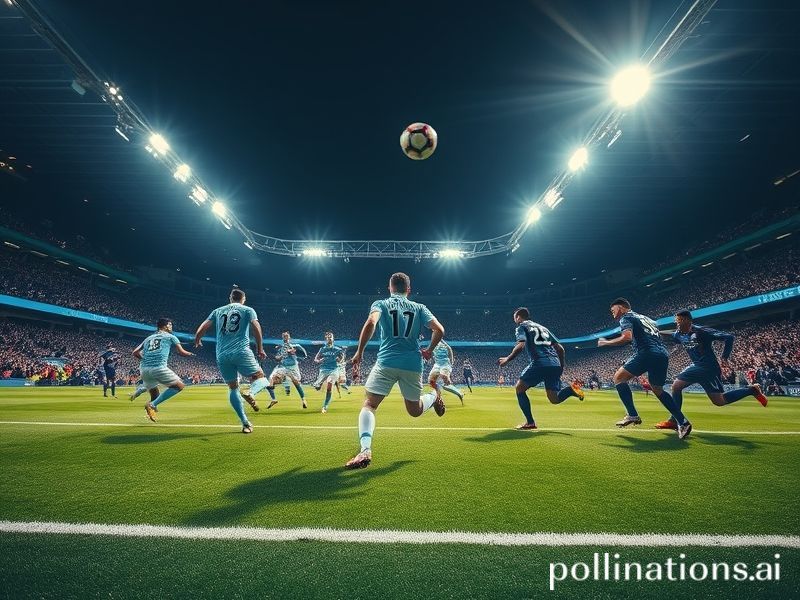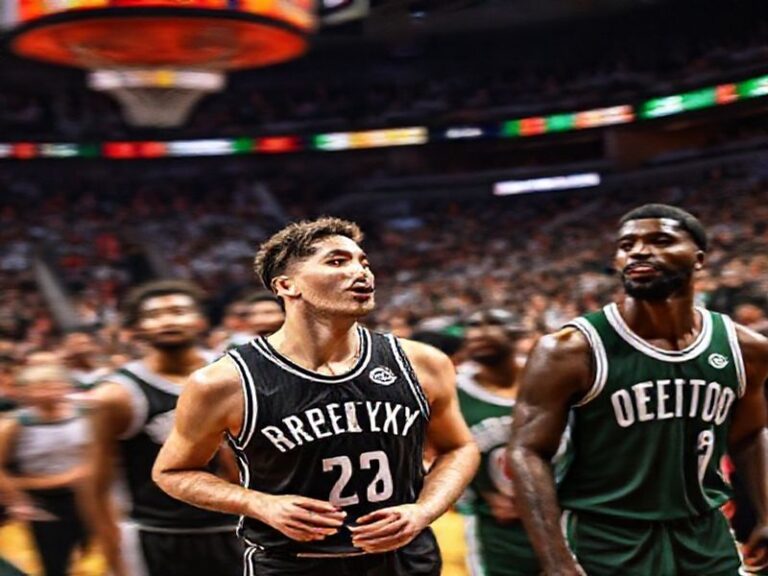Manchester vs. ‘London City’: The Champions League Match That Doubled as a Global Trade Summit
MANCHESTER, England – On a drizzly Thursday evening, the Etihad Stadium hosted a spectacle that, depending on your passport, was either a thrilling Champions League quarter-final or the latest episode in Britain’s longest-running regional sitcom: “Manchester vs. The South.” Manchester City, the sovereign wealth fund with a football hobby, faced what the English press insist on calling “London City,” a composite entity apparently stitched together from Arsenal, Chelsea, Spurs and whatever West Ham’s accountant left behind. The rest of the planet, meanwhile, watched the same match and saw something else entirely: a geopolitical barometer wrapped in polyester and regret.
From the Gulf to Guangzhou, this was never just 22 men chasing a glorified goat bladder. For Abu Dhabi’s investment office, a City victory is a quarterly earnings call in cleats; for the American private-equity tourists who now treat the Premier League like a very loud ETF, it’s a liquidity event with chanting. Even Beijing tuned in, less for the beautiful game than to calibrate how much new steel and surveillance a Champions League run will buy. In a world where soft power is measured in shirt sales and TikTok hashtags, last night’s 3-1 scoreline carried the diplomatic weight of a minor trade agreement—only with more pyrotechnics and a better soundtrack.
The London side—let’s be generous and call them “the metropolitan coalition”—arrived wearing the nervous optimism of a coalition government. Their fans, flown in from Lagos, Los Angeles and Luxembourg, represent the last acceptable colonialism: global middle-class tourism disguised as civic pride. One could almost hear the collective sigh in the away end each time Erling Haaland thundered past, a Viking metaphor for the North’s ongoing raid on the capital’s self-regard. Down in the executive boxes, hedge-fund managers scribbled mental ledgers: every Haaland goal equals another Mayfair flat sold to a crypto exile.
Yet the true international subplot was managerial. Pep Guardiola, Catalonia’s most successful export after sangria and existential dread, now coaches a team owned by an emirate that still criminalizes the very public displays of affection he once celebrated on Barcelona’s streets. Opposite him, a rotating cast of London coaches—each more expensively sacked than the last—performs the ritual sacrifice demanded by impatient oligarchs and impatient fans alike. Somewhere in Buenos Aires, Marcelo Bielsa lit another cigarette, chuckling at the sheer predictability of it all.
The game itself was a masterclass in late-capitalist choreography: LED hoardings hawking NFTs to people who still can’t spell “blockchain,” while drones filmed drones filming fans filming themselves. When Phil Foden curled in the third, the stadium erupted in that peculiarly British orgasm of repressed emotion—half pride, half terror that the VAR might still intervene like a disappointed parent. In Singapore, a betting syndicate toasted its algorithm; in Nairobi, a bar owner switched to the Arsenal highlights, quietly relieved he’d taken the under. Everywhere else, the planet kept spinning, indifferent but invoiced.
What does it all mean, beyond the obvious lesson that money can indeed buy happiness, provided happiness is defined as a semi-final against Real Madrid? Simply this: in the 21st century, city-states no longer need walls or navies; they need a decent left-back and a content strategy. Manchester exports petro-dollars laundered through sport; London exports the illusion that geography still matters in a league where your captain is Portuguese, your striker Norwegian, your owner a tax-exiled oligarch and your most loyal supporter a YouTuber in Jakarta.
The final whistle blew, confetti cannons coughed their biodegradable load, and the players trotted off to whichever tax haven they currently call Tuesday. Outside, rain resumed its gentle mockery of human ambition. Somewhere in Brussels, an EU bureaucrat filed the match under “cultural services,” VAT code unknown. And the rest of us—jet-lagged, over-caffeinated, pretending tribal loyalties still make sense—queued for the tram, humming a chant we don’t understand in a language not our own. The world, it turns out, is just a very big local derby, and we are all away fans now.







